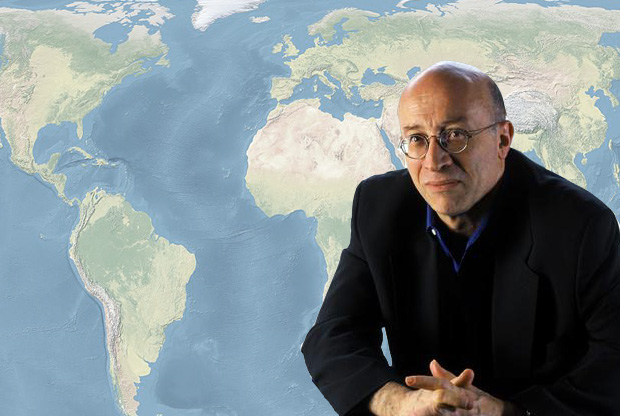Tony, Where Are Your Footnotes?! April 25, 2016
Author: Beach Combing | in : Actualite, Contemporary , trackbackTony Judt’s Postwar (2005) is one of the most important history books of the last generation. However, the book that runs to over eight hundred pages has a strange lacuna. It lacks notes and it lacks bibliography. Judt was quite open about this lack of reference apparatus and explains it in his introduction (in a footnote on the first page of the Preface no less).
In the chapters that follow the footnotes are, for the most part, of the traditional sort: that is, they comment on the text rather than identify a source. To avoid adding to what is already a very long book addressed to a general readership, a full apparatus of references is not provided here. Instead, the sources for Postwar, together with a full bibliography, will in due course be available for consultation on the Remarque Institute website [http://www.nyu.edu/pages/remarque/].
A couple of points to make here. ‘Due course’ suggests to this reader: ‘look I’ve been really busy getting this monstrous book together, just back off and give me a couple more years to get this stuff up.’ Tony Judt (unfortunately now dead after a brave fight with Motor Neurons) was a great historian: his ‘stuff’ would have been worth waiting for. As to what is promised Judt wrote ‘the sources…. with a full bibliography’. This can only mean the notes AND the bibliography.
Now if you go to the Remarque site today. There is a page with two pdfs, one the bibliography contents and one the bibliography itself: a pointless division (come on guys!) The bibliography runs to 31 pages (or 33 pages if the two pdfs are run together). Now would it really have been so catastrophic to add another 33 pages to Postwar? The answer if Judt were alive would almost certainly be ‘but this is only a select bibliography’. To which next question has to be: ‘Tony, where is, then, the full bibliography and where are the notes?’ ‘The sources’ or the notes are MIA: they do not appear on the site. The result is incredible: one of the most important history books of modern times (one that at times used archives) does not conform to the most basic rules of academic referencing. Interestingly there were consequences. David M. Kennedy sat on the Pulitzer committee that discussed Postwar. In the end, he reports that the committee decided that it would not be possible to award a Pulitzer to a book without citations.
Beach has no problem with the idea that footnotes appear online rather than with the book. His problem with Postwar is that Judt was so busy with subsequent projects and, then, that terrible illness, that he never got round to putting them up. Of course, anyone who has ever written footnotes will understand his reluctance. Academic writing entails five stages: research, writing, referencing and peer-review. Research and writing are a lot of fun: referencing is hell, and peer-review is the hell of hells. But whereas peer-review often involves making an article worse to satisfy someone and their hobbyhorse, referencing is necessary. Beach has never written an article where he has not changed contents while referencing: the discipline of hunting down sources is such that mistakes and inaccuracies and misconceptions can slowly be washed out of the text.
Judt himself may have been rather more organized than this blogger. He describes in some detail how he went into planning the book: the reading took, see the last sentence, ten years.
Quite pragmatically, with a first step. I left for a weekend – this was in 1992 – and made a rough plan in my head. Next I compiled a reading list that consisted of four categories. First and most difficult: the hard data and facts. I arrived at approximately thirty-five different categories, from cost of living to electoral results and life expectancies, from ’45 to the present. Graduate students put together these data for me – and this was before the Internet! Second, the very broad spectrum of secondary literature. I could read the sources myself in English, French, German and Italian, and occasionally I could get by in Spanish, Dutch and Czech. Third, primary sources like memoirs, novels, essays, commentaries and autobiographies. And fourth, the ‘real’ primary sources, that is, official documents and archives. I have used them selectively, like the reports about the Hungarian uprising of 1956, the depictions of the Suez crisis or all the material about 1989 – about this, ironically, I found more material in the U.S. than in Western Europe. Altogether, this was a reading project of about ten years.
Very few inaccuracies have come out in reviews and so Judt and his post-grads were probably well organized during the writing. However, the lesson is clear. By all means publish your critical apparatus online. But do so before the book reaches the bookshelves. Otherwise, you might be giving up your shot at the Pultizer…
Other thoughts on the Postwar heresy: drbeachcombing AT yahoo DOT com



